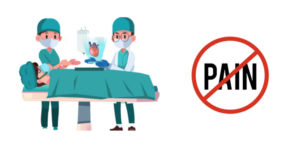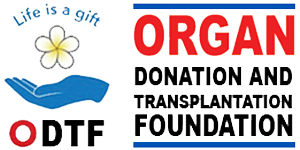



Click To Learn

Organ donation is when you decide to gift an organ to save and transform the life of someone else. This is a gift like no other, as you have the chance to save someone else.
You can donate organs while you are alive (living organ donation), however, most organ donations come from people who have died. As you know people don’t die in circumstances that make it possible for them to donate their organs. This is why every potential donor is important.
 It is simple. First gather as much information about being an organ donor. The information is freely available online. The next step is to make up your own mind if you like to be a donor and then talk to your loved ones about your decision, so that that they can support your worthy choice. The final step is to register with us where your personal information will be stored on a database with countless others. Once you register you will receive and your donor card so that you can carry it with you at all times.
It is simple. First gather as much information about being an organ donor. The information is freely available online. The next step is to make up your own mind if you like to be a donor and then talk to your loved ones about your decision, so that that they can support your worthy choice. The final step is to register with us where your personal information will be stored on a database with countless others. Once you register you will receive and your donor card so that you can carry it with you at all times.
 If you die in a way your organs can be donated, our panel of medical staff will access the ODTF Register (Database) to see if locate your name. They will then contact your loved ones for the final consent. With all the approvals in place you could go on to save 8 lives.
If you die in a way your organs can be donated, our panel of medical staff will access the ODTF Register (Database) to see if locate your name. They will then contact your loved ones for the final consent. With all the approvals in place you could go on to save 8 lives.
 You can donate your organs when a ‘brain death’ is diagnosed in an intensive care setting while you are connected to a machine.
You can donate your organs when a ‘brain death’ is diagnosed in an intensive care setting while you are connected to a machine.- Brain death is where a person no longer has activity in their brain stem due to a severe brain injury. They have permanently lost the potential for consciousness and the capacity to breath. When this happens, a machine called a ventilator keeps oxygen circulating through the person’s bloodstream. There’s no way of reversing this process and the heart will eventually stop beating, even if a ventilator continues to be used. Brain death will always be diagnosed by a panel of expert doctors in an intensive care unit.
 Yes, you may register and in the event of brain death, doctors will consider your suitability for donation on an individual basis. Remember, even if your organs are unsuitable for transplantation, certain tissues can still be transplanted to help other people in need.
Yes, you may register and in the event of brain death, doctors will consider your suitability for donation on an individual basis. Remember, even if your organs are unsuitable for transplantation, certain tissues can still be transplanted to help other people in need.
 According to the Sri Lankan law, you have to be at least 21 years of age to donate your organs after death. However this age may change in future to include younger donors if appropriate legislation is passed.
According to the Sri Lankan law, you have to be at least 21 years of age to donate your organs after death. However this age may change in future to include younger donors if appropriate legislation is passed.- There is no upper age limit. However when we get older, all of our internal organs get weaker. Therefore, if we transplant weaker organs, the benefit to the recipient is minimal. Generally, age above 75 years is not considered for organ donation.
 You can only become an organ donor AFTER a panel of expert doctors pronounce you dead. There are strict guidelines governing the confirmation of brain death which are accepted worldwide.
You can only become an organ donor AFTER a panel of expert doctors pronounce you dead. There are strict guidelines governing the confirmation of brain death which are accepted worldwide.
 The organ retrieval is done by a team of expert surgeons inside an operating theater just like any other surgery. Therefore, the body is handled with utmost respect.
The organ retrieval is done by a team of expert surgeons inside an operating theater just like any other surgery. Therefore, the body is handled with utmost respect.
 As the time of death is considered as the time of “brain death” confirmation, there won’t be a delay in handing over the body to the relatives after the procedure. There is no need to alter the funeral proceedings and can be conducted according to your religion/beliefs.
As the time of death is considered as the time of “brain death” confirmation, there won’t be a delay in handing over the body to the relatives after the procedure. There is no need to alter the funeral proceedings and can be conducted according to your religion/beliefs.
 No. Once the brain is no longer functioning (brain dead), he/she will not have any sensation including pain.
No. Once the brain is no longer functioning (brain dead), he/she will not have any sensation including pain.
 No, it is unethical to divulge this sensitive information.
No, it is unethical to divulge this sensitive information. - The recipient also will not know anything about the donor.
 When you submit your completed registration form, we will send you a donor card by post to confirm your registration.
When you submit your completed registration form, we will send you a donor card by post to confirm your registration. - In addition, the information you have provided will be stored securely in a database under your national identity card number (NIC).
- Following an unfortunate event if you happen to get admitted to any government hospital and brain death diagnosis is made, the hospital staff can look up your NIC number across the database to confirm your registration status.
- When the doctors have contacted your next of kin (closest relative) and if he/she consents, the donation process will be initiated.
 No, the doctors will always contact your next of kin to obtain the consent before proceeding with the donation process. Your donor card will help us to initiate the consenting process.
No, the doctors will always contact your next of kin to obtain the consent before proceeding with the donation process. Your donor card will help us to initiate the consenting process.

